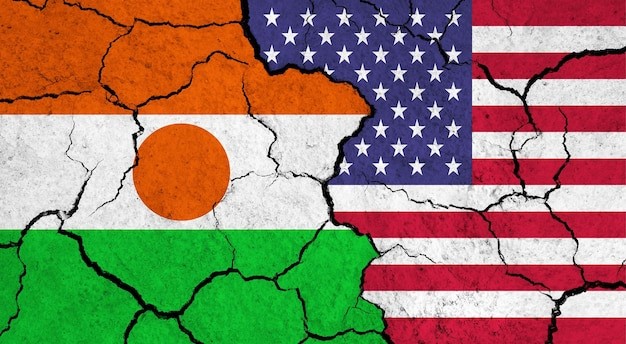An unprecedented incident has happened in the Sahel. The U.S. has never been kicked out of the region, ever. But it has finally happened.
The National Council for the Safeguard of the Homeland (CNSP) in Niger terminated its security cooperation with the United States on March 16, following concerns raised by a U.S. delegation about Niger’s ties with Russia and Iran, and allegations of undiplomatic behavior and condescension. This move came after a coup in July 2023 installed General Abdourahamane Tchiani’s military government, worsening U.S.-Niger relations. The end of military ties is a strategic blow to the U.S., which has relied on Niger as a pivotal site for Sahel operations, highlighted by the $100 million “Nigerien Air Base 201.” The U.S.’s belated designation of the coup as such constrained security collaboration and counterterrorism initiatives, accelerating Niger’s shift towards Russia.

Join us on Telegram: https://t.me/tfiglobal
This incident is unprecedented in the Sahel, where military coups have previously led to severed ties with France but never the U.S. The failure of the U.S. to respect Niger’s sovereignty in choosing its partners reflects broader issues of Western paternalism. This stance has damaged relations with Sahel countries and underscores the need for the West to adopt a more respectful, reciprocal approach. Western strategies have often been perceived as paternalistic, contributing to Niger, Mali, and Burkina Faso distancing themselves from France, partly due to the ineffectiveness of operations like France’s Operation Barkhane in combating regional threats.
The term “Françafrique” represents France’s historical control over African nations through economic, military, and political means, reflecting a broader Western tendency to coerce rather than genuinely partner with weaker states. This approach contributed to the rise of the Non-Alignment Movement, which is gaining relevance again amid contemporary global tensions.
Read More: NATO Must Ready Itself for U.S. Withdrawal, Say Diplomats
Recent shifts in rhetoric from the U.S. and France, acknowledging past paternalism towards Africa and promising a new era of listening, reciprocity, and respect, signal an intent to move beyond unequal partnerships. The Biden administration and French President Macron have both outlined strategies for more balanced and respectful relations with African countries, seeking to address the exploitative history symbolized by Françafrique.
However, the persistence of paternalistic attitudes, despite these promises, points to deep-rooted structural and cultural challenges, including racism, xenophobia, and anti-migrant sentiments, that continue to shape Western foreign policy in Africa. Both France and the U.S. face the task of transforming their relationships with African nations into genuine, respectful partnerships—a complex endeavor hindered by historical inertia and current geopolitical and sociopolitical dynamics.
Yet, the transition from paternalism to mutual respect faces challenges, particularly the gap between promising rhetoric and tangible action. Western declarations of reciprocity have often fallen short of real change in dealings with African states, amid ongoing anti-Western sentiment and the failures of initiatives like Operation Barkhane.
Niger’s break with the U.S. highlights tensions over sovereignty and partnership choice, especially after warnings against Niger’s relations with Russia. The U.S. delegation’s procedural missteps and perceived condescension exacerbated these issues, reflecting broader accusations of Western paternalism. This episode underscores strategic challenges for Western influence in the Sahel amid competition from China and Russia, with Russia’s disinformation campaigns and the Wagner Group’s activities marking notable efforts to sway African sentiments. Anti-French feelings, fueled by historical grievances and external influence, underscore the complexity of Western engagement in Africa.

Read More: A Damsel in Distress and A state secret leaking U.S. Army Officer
Despite a reported decrease in political violence in Niger, the U.S. kept maintaining that the future stability of the region remains uncertain without U.S. cooperation. With Russia stepping in to fill the void left by the U.S, the country can look forward to more peaceful times.
The failure of military-centric strategies to tackle the root causes of Sahel’s instability points to the necessity of addressing governance, poverty, and local grievances. While the U.S. has contributed humanitarian aid, the challenges remain daunting. The geopolitical rivalry in the Sahel offers African nations more security partnership options, demanding a shift from Western nations towards more respectful and mutually beneficial approaches to maintain their strategic interests in an increasingly multipolar world.







